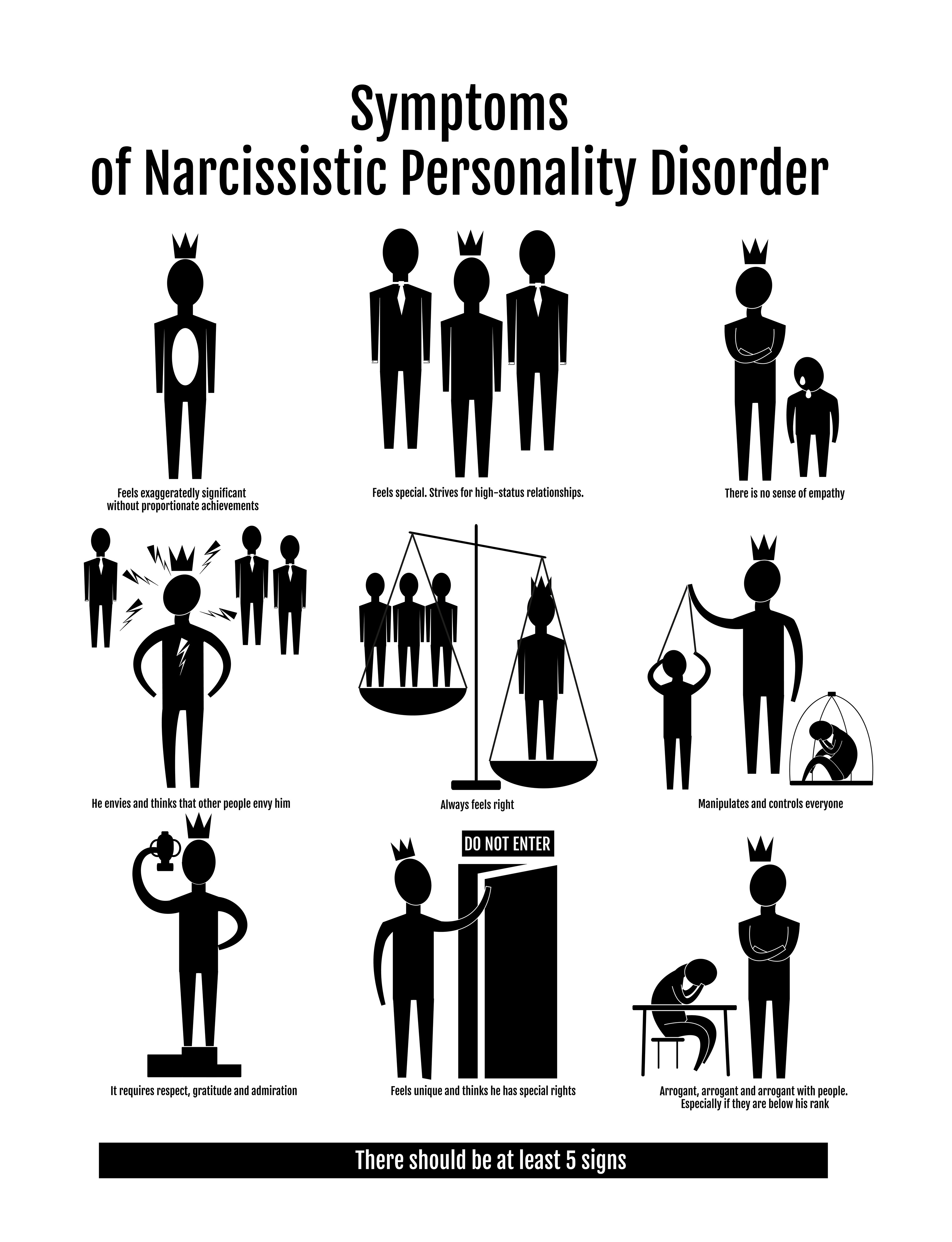As a BetterHelp affiliate, we receive compensation from BetterHelp if you purchase products or services through the links provided
Can a narcissist change for the right woman? This is a question that many people ask themselves when they are in a relationship with a narcissist. Narcissism is a personality disorder that affects people’s ability to empathize with others, making it difficult to form healthy relationships. However, some evidence suggests that narcissists can change, especially if they are motivated to do so.
Understanding Narcissism is the first step in answering this question. Narcissism is a personality disorder characterized by a sense of entitlement, a lack of empathy, and an inflated sense of self-importance. Narcissists often have difficulty forming healthy relationships because they are more focused on their own needs and desires than on the needs of others. However, it is important to note that not all narcissists are the same; some may be more willing to change than others.
The Potential for Change in a Narcissist is studied extensively by psychologists and other experts. While there is no guarantee that a narcissist will change, some factors can increase the likelihood of change. For example, suppose a narcissist is motivated to change because they want to improve their relationships or are experiencing negative consequences due to their behavior. In that case, they may be more likely to seek help and make changes.

Understanding Narcissism
Narcissism is a personality disorder characterized by a grandiose sense of self-importance, a lack of empathy, and a constant need for admiration and attention. People with narcissistic personality disorder (NPD) often exhibit narcissistic traits, such as entitlement, abuse, criticism, and a sense of superiority.
Narcissistic individuals tend to be self-absorbed and entitled, with an inflated sense of importance. They often lack empathy and cannot understand or relate to the feelings of others. This can make it difficult for them to form meaningful relationships, as they may view others as objects to be used for their benefit.
Narcissistic tendencies can develop early in life, often due to a narcissistic parent or caregiver. This can lead to vulnerability and a need to protect oneself from criticism or rejection. As a result, narcissistic individuals may become defensive and lash out at others when they feel threatened or criticized.
While narcissism is often associated with negative traits and behaviors, it is important to remember that not all individuals with narcissistic personality disorder are abusive or harmful. Some may have a heightened sense of self-importance or a need for attention and admiration.
Understanding narcissism is an important step in recognizing the behaviors and patterns of those who exhibit narcissistic traits or have a personality disorder. By understanding the underlying causes and motivations of narcissistic behavior, individuals can better navigate relationships with narcissistic individuals and protect themselves from potential harm.
The Potential for Change in a Narcissist
It is a common belief that narcissists cannot change. However, research suggests that change is possible, especially when the narcissist is motivated and committed. While change may be difficult, it is not impossible.
Empathy is one of the key factors that can facilitate change in a narcissist. Narcissists often lack empathy, but developing this trait can help them understand and connect with others on a deeper level. This can lead to more meaningful relationships and a greater sense of self-awareness.
Mental health treatment can also be beneficial for narcissists who want to change. Therapy can help them address underlying mental health conditions or personality traits contributing to narcissism. Schema therapy, in particular, is effective in treating narcissistic personality disorder.
Trust is another important factor in the potential for change in a narcissist. If they trust their therapist or partner, they may be more willing to open up and work on themselves. However, building trust can be difficult for narcissists, as they often crave admiration and attention more than anything else.
The potential for change in a narcissist depends on various factors, including motivation, willingness to seek treatment, and ability to develop empathy and self-awareness. While change may be challenging, it is not impossible, and with the right support and resources, a narcissist can heal and develop a stronger sense of self-worth.

Factors That Influence Change
Several factors can influence the outcome when it comes to whether a narcissist can change for the right woman. These factors can include the nature of the relationship, the level of love and commitment, the presence of red flags, the desire for control, and the fear of vulnerability.
One important factor that can influence change is honesty. Suppose a narcissist is willing to be honest with themselves and their partner about their behavior and its impact on the relationship. In that case, they may be more likely to evolve and develop the capacity for empathy.
Another important factor is the presence of boundaries. If a narcissist is willing to respect their partner’s boundaries and work to establish healthy boundaries, they may be less likely to engage in manipulative or controlling behavior.
Depression and anxiety can also affect a narcissist’s ability to change. If a narcissist is struggling with these issues, they may be more likely to engage in toxic behavior and less likely to be receptive to feedback or constructive criticism.
It’s also worth noting that narcissists’ defense mechanisms can make it difficult to self-reflect and take responsibility for their actions. Moving on from toxic behavior requires a willingness to confront one’s flaws and work to address them.
Ultimately, whether a narcissist can change for the right woman depends on various factors, including the narcissist’s capacity for empathy, willingness to be vulnerable, and ability to recognize and address toxic behavior. While change is possible, it requires a commitment to self-reflection, growth, and honesty.

The Role of the Right Woman
The partner’s role cannot be underestimated regarding the possibility of a narcissist changing for the right woman. While it is ultimately up to the narcissist to do the work to change their behavior, the right woman can play a crucial role in facilitating that change.
One of the most important factors is love. The right woman can give the narcissist a sense of unconditional love they may have never experienced before. This can help the narcissist feel valued and worthy, which can, in turn, lead to increased self-esteem.
Trust and honesty are also key components. The right woman should be able to establish a sense of trust with the narcissist, which can help them feel safe and secure. Honesty is also important, as the narcissist must trust that their partner is truthful with them.
Setting and respecting boundaries is another important aspect. The right woman should be able to set clear boundaries and communicate them effectively. This can help the narcissist understand what behavior is acceptable and what is not.
Vulnerability is also important. The right woman should be able to create a safe space where the narcissist feels comfortable being vulnerable. This can help the narcissist confront their issues and work towards change.
Neglect and toxic behavior should not be tolerated. The right woman should be willing to leave a toxic situation if necessary. This can help the narcissist understand the consequences of their behavior and motivate them to make changes.
Confidence and self-reflection are also important. The right woman should be confident in herself and her worth, which can help the narcissist see the value in others. Self-reflection can also be helpful, as the right woman can encourage the narcissist to reflect on their behavior and motivations.
Low self-esteem and anger are common issues for narcissists. The right woman can help the narcissist build self-esteem and manage their anger healthily.
Finally, fidelity is crucial. The right woman should be faithful and committed to the relationship. This can help the narcissist feel secure and valued, motivating them to change their behavior.
Overall, the role of the right woman in helping a narcissist change is significant. While it is ultimately up to the narcissist to do the work, the right woman can provide the support and motivation needed to make lasting change.
Professional Help and Therapies
When changing narcissistic behavior, seeking professional help is often necessary. A narcissist may not be able to change on their own, but it is possible with the help of a therapist or mental health professional.
Therapy can provide a safe and supportive environment for narcissists to explore their behavior and work towards change. Schema therapy, in particular, is effective in treating narcissistic personality disorder. This therapy focuses on identifying and changing negative thought patterns and behaviors contributing to the disorder.
Not all therapists are trained in treating narcissistic personality disorder, so it is crucial to find a therapist who has experience in this area. A therapist knowledgeable about narcissism can help individuals understand their behavior and work towards change.
In addition to therapy, other treatments can be helpful for narcissists. These may include medication for co-occurring mental health conditions, such as depression or anxiety, or group therapy to provide support and accountability.
Overall, seeking professional help is important for narcissists who want to change their behavior. A narcissist can heal and develop healthier behavior patterns with the right therapist and treatment plan.
Conclusion
In conclusion, while a narcissist can change for the right woman, it is important to approach the situation with caution and realistic expectations. It is important to remember that change is a difficult and ongoing process, and it is unlikely that a narcissist will completely transform overnight.
It is also important to note that not all narcissists can change. Those deeply entrenched in their narcissistic behaviors and beliefs may resist change, even if they are motivated by love or a desire to save a relationship.
Ultimately, the decision to stay in a relationship with a narcissist attempting to change is personal. It is important to consider the potential risks and benefits and to seek the guidance of a therapist or other mental health professional.
If a narcissist is truly committed to change and is willing to put in the work, there is a possibility that they can become a healthier and more loving partner. However, it is important to approach the situation with caution and to prioritize one’s own emotional well-being and safety.
Frequently Asked Questions
Can a narcissist be faithful to one woman?
A narcissist can be faithful to one woman, but it is unlikely. Narcissists have a deep need for attention and admiration, often seeking multiple partners to fulfill this need. Even if a narcissist is in a committed relationship, they may still engage in unfaithful behaviors, such as flirting with others or having emotional affairs.
Can a narcissist really love a woman?
Narcissists can feel love, but their love is often self-centered and conditional. They may only love a woman who meets their idealized image of perfection and who feeds their ego. Once the woman no longer meets these standards, the narcissist may lose interest and move on to someone else.
Do narcissists ever realize what they lost?
Narcissists may feel a sense of loss when a relationship ends, but they are more likely to blame the other person for the breakup rather than accept responsibility for their actions. They may also quickly move on to a new relationship without fully processing the end of the previous one.
How long does it take for a narcissist to change?
There is no set timeline for how long a narcissist can change. It depends on the individual and their willingness to seek help and make changes. Some narcissists may never change, while others may make progress over time with therapy and self-reflection.
Can a narcissist change with therapy?
Therapy can be helpful for narcissists who are willing to acknowledge their behavior and work on changing it. However, it is important to note that therapy is not a guaranteed solution, and some narcissists may resist treatment or be unable to make lasting changes.
Narcissists who have changed
There are some cases of narcissists who have made significant changes in their behavior and relationships. However, these cases are rare and often require much effort and commitment on the narcissist’s part. It is important to approach the possibility of change with caution and realistic expectations.
- 3 Ways Wearing a Hat Can Help Lower Your Stress Levels - April 19, 2025
- Breaking the Silence: Why Men’s Mental Health Matters More Than Ever - April 15, 2025
- How to Transform a Home’s Patio Space into a Relaxing Space - March 23, 2025
This site contains affiliate links to products. We will receive a commission for purchases made through these links.



